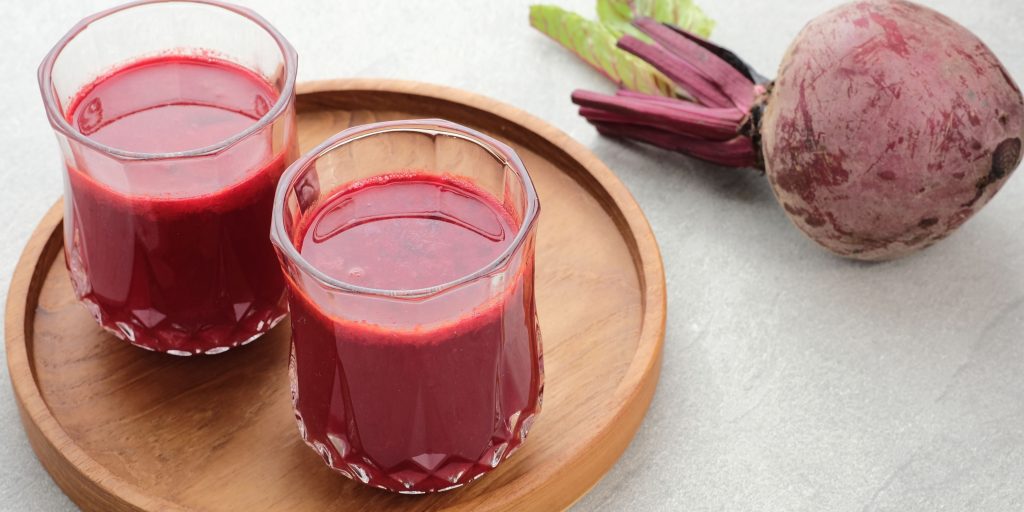Am I suffering from postpartum fatigue? Why am I so tired after giving birth?
If this is you, hold on, mama, you are not alone.
I mean,
It’s no longer uncommon to hear new moms ask these questions repeatedly in their first six weeks after delivery.
Sometimes postpartum fatigue may extend beyond these first six weeks, and you have to at least fake your ‘okayness’ as you wait for your body to completely heal.
The National Library of Medicine’s research that compares fatigue and energy levels in postpartum women noted that the new mom’s fatigue levels are the same, or higher, at 6 weeks postpartum as at the time of delivery.
Some people may even continue experiencing mild postpartum fatigue and dizziness for up to 19 months.
But
What Causes Postpartum Fatigue?
Pregnancy and childbirth are no joke. You experience hormonal imbalances, micronutrient depletion, and postpartum bleeding.
These factors can highly affect the normal functioning of your body.
Similarly, the body’s demands for breastfeeding and newborn care are pretty high.
In fact, breast milk production can burn up an extra 400 to 500 calories a day of your body energy, not to mention the countless hours you have to be up and about breastfeeding your little one.
And not just that.
NIH Studies reveal that postpartum fatigue may signify medical or psychiatric illness. You may either be suffering from;
- Anemia
- Infections or inflammation
- Thyroid disorders
- Mood disorders
- Childbirth recovery
All these factors can affect your body, leaving you with fatigue and dizziness all the time.
Symptoms of Postpartum Fatigue
Most new moms experiencing postpartum fatigue have an overwhelming sense of physical and emotional exhaustion.
You feel so drained, with no energy to concentrate or perform your daily duties.
Common Symptoms may include:
- General body fatigue and tiredness
- Body aches, especially hip joints, and bones
- Some elements of dizziness
- A lack of energy and motivation
- Anxiety and restlessness
- Difficulty concentrating and loss of interest in anything
- Trouble sleeping
- A sense of despair and sadness
- Feeling overwhelmed by everything around you
Is there a need for early intervention of postpartum fatigue?
Definitely yes.
Postpartum fatigue is like cancer. It can eat you slowly and increase the risk of developing postpartum depression.
Experiencing a sense of despair can impact your social life, including the ability to take good care of your baby.
NIH study warns that, while fatigue can affect people of different ages and gender, postpartum fatigue poses a higher health risk to new moms.
Mothers with newborns are at higher risk due to the demanding life tasks to accomplish during this period.
This excessive fatigue, anxiety, and restlessness can lead to a low breast milk supply or result in breast infections like mastitis if early intervention is not sought.
Similarly, the possibility of sinking into depression is high, which can negatively affect the mother and the baby.
Best Home Remedies for Postpartum Fatigue
Besides having a balanced diet, and additional hours of rest, being intentional about your postpartum body needs is crucial.
Not only will you concentrate on foods that help replenish your micronutrients, but you will also go the extra mile to boost your energy levels.
Here is a list of body-aiding remedies to help you cope with postpartum fatigue.
Affiliate Disclosure: As an Amazon Associate, I get a small commission for purchases made from Amazon.com through links in this post. Learn more about our affiliate disclaimer here.
1. Blood Boaster Homemade Smoothie for Postpartum Fatigue
You’ve been through childbirth, and you probably bleed a lot. Additionally, you may still experience postpartum bleeding.
So it’s only logical that in your first 6 months, you should push your system to produce more red cells by consuming food rich in iron.
Studies indicate that iron deficiency, even without anemia, can potentially cause fatigue.
This may happen, especially if your system lacks enough blood cells to transport oxygen throughout your body.
To help your body recover from childbirth and postpartum bleeding, you must eat foods rich in iron, which is why you need this smoothie.
Ingredients
How to make your smoothie
- Wash all the ingredients in clean water
- Peel the outer part of the beetroot
- Chop them into smaller pieces
- Blend all the ingredients until the mixture is fine and consistent.
- Take a glass of this smoothie at least three times a week
Why do I love this smoothie?
It’s loaded with natural health and readily available ingredients. Our main ingredient here is beetroot which is loaded with many nutrients. For instance, you get
- Iron to boost red blood cells production
- Vitamin B-6 for enhancing metabolism and production of red blood cell
- Calcium for bone rejuvenation and strength
- Magnesium for boosting immunity, muscle and nerve health
- Zinc for promoting wound healing
- Phytochemicals and Betalains are responsible for antioxidant, anti-inflammatory, and antitoxic properties.
If you’re too weak to source fresh ingredients, you may as well go for organic beet juice like Pomona organic-pure beet juice once in a while to help boost the production of red blood cells for proper oxygen circulation.
2. Bone Broth and Soup for Calcium
Bone broth or soup is a nutritious drink from boiling animal bones and connective tissue.
While most people find it delicious only when served by professional Chefs, I can assure you, mama, regularly drinking this soup is one of the fastest ways to help relieve your postpartum fatigue.
I believe you may have already taken this nutritious stock in soups, sauces, and gravies for leisure.
But do you know you need it on your diet after childbirth as a health drink?
I like to take beef bone soup and fish bone soup interchangeable because they both provide different nutrients. You must ensure you have Marrow and connective tissues like feet, hooves, and bones.
Don’t frown yet.
Animal bones are rich in a variety of nutrients. They contain calcium, phosphorus, magnesium, and potassium.
Also, studies show that they consist of various trace minerals responsible for building and strengthening your bones.
Using connective tissues of animals gives you glucosamine and chondroitin. These are natural compounds that support joint health.
Consume a lot of Marrow for vitamin A, vitamin K2, minerals like zinc, iron, boron, manganese, and selenium, as well as omega-3 and omega-6 fatty acids.
Once in a while, go for Fishbones. Research shows that they contain iodine, which is essential for healthy thyroid function and metabolism
The trick about broth preparation is the long cooking time. Studies suggest that the longer you cook, the more nutrients are released into the soup.
Additionally, the protein collagen in these animal parts turns into gelatin when cooked and yields several essential amino acids.
3. Look Deeper Into Your Diet
A new mom needs a carefully selected diet to help replenish the depleted nutrients during pregnancy and childbirth.
Dietitian Farida Majimbo of The Sacred Heart Maternal Hospital states that a good diet for a woman who has given birth should include iron, Vitamin B12, Vitamin D, and Vitamin C. You may also add DHA, an omega-3 fatty acid for baby breast milk needs.
Iron and vitamin B12 are crucial for the mother’s blood cell development and blood volume build-up. They also enhance proper baby development and optimal thyroid function.
Good iron sources include red meat, liver, clams, oysters, and green leafy veggies. Similarly, you may obtain Vitamin B12 from clams, tuna, liver, beef, and salmon.
Vitamin C and D are crucial for bone health and immune system support. Vitamin D supports the immune system, brain, and nervous system.
One study also indicates that low levels of vitamin D can increase the risk of postpartum depression and anxiety. As Such, you need to eat food that is rich in this vitamin, like salmon, tuna, fish, liver, fortified dairy products, and egg yolks.
To increase C vitamins, ensure you take a lot of citrus fruits like lemon and orange juice.
You may also incorporate choline into your daily diet. Research shows that The nutrition need for choline increases during pregnancy and in breastfeeding moms.
This micronutrient helps to enhance memory and brain development in babies. You can get your daily dose of choline from eggs and organ meats like liver.
4. Grab Postnatal Multi-Vitamins Supplements
Most moms don’t like multivitamins. And once they give birth, it feels like a huge relief from their daily use of these supplements.
However, medics advise that multivitamins are safe and recommended after birth. If you still feel some postpartum fatigue, then you should do one more dose.
One research shows that pregnancy and childbirth deplete many micronutrients in the body.
As such, having a postnatal multivitamin may help fill the nutritional gap by providing additional minerals and vitamins needed for a healthy body.
Depending on your body’s needs, you may choose a multivitamin that consists of vitamins D, C, and B.
Vitamins C strengthens your immunity, B vitamins are great for cellular energy demands, and D will support your overal health.
Multivitamins are good insurance against any nutritional deficiencies, especially in the first few hectic weeks of your baby’s life, when it might be tough for you to find time to eat appropriately.
Why don’t grab yourself a dietitian-recommended postnatal multivitamin like Mega food baby and Me Multi-postnatal Vitamin
5. Take a Lot of Water to Beat Postpartum Fatigue
Do you know losing as little as 1.5% of your body’s water can cause symptoms of fatigue, dizziness, weakness, and light-headedness in an average person?
What about a breastfeeding mother?
Well, the symptoms may be overwhelming.
Water is crucial for your health. It forms about 55% to 78% of your body depending on age and gender. It serves different functions in our body, including;
- Aiding in the digestion process.
- Helping your body to get rid of waste.
- Lubricating your joints for optimal functioning.
- Making your saliva.
- Balance your body’s chemicals.
- Enhancing proper functioning of your brain like creating hormones and neurotransmitters.
- Deliver oxygen all over your body.
- Cushion your bones.
- Regulate your body temperature.
As a nursing mother, you need about 16 cups of water per day. Luckily you can get this requisite amount from food, beverages, fruits, and drinking water to compensate for the extra water used to make milk.
One way to hit your daily water target is to drink a large glass of water each time you breastfeed your baby. Also, have a water bottle around you to encourage random sips.
6. Go for Herbal Teas
Herbal teas are widely known for their relaxing effect. Their ability to act on nerve cell function has been shown to produce hypnotic and soothing effects leading to calmness.
Here is a list of herbal tea you should consider adding to your diet if you want to beat postpartum fatigue and dizziness.
According to the Food and Agriculture Organization of the United Nations, Moringa leaves are rich in many nutrients. The leaves contain protein, vitamins A, B, C, and other minerals crucial for a healthy body. They are also rich in anti-inflammatory properties, such as isothiocyanates, flavonoids, and phenolic acid, needed for your healing process.
Additionally, Moringa is considered a galactagogue. This means taking it will help boost your milk supply. It’s highly recommended for pregnant and nursing mothers as well as young children.
Red raspberry is a herb associated with uterine toning and pelvic muscles. It’s known to reduce excessive bleeding and assist with wound healing.
Red Raspberry is rich in nutrients and minerals, including vitamins C and B, potassium, iron, zinc, and magnesium.
Additionally, these herbs contain polyphenols like tannins and flavonoids, which act as antioxidants in your body and can help protect cells from damage.
Chamomile tea is widely known for its calming effect. Thus, people use it as sleep therapy. This herb, however, consists of traces of minerals and vitamins like potassium, calcium, and folate.
Additionally, Chamomile herb contains bioactive phytochemicals like flavonoids which acts as antioxidants.
Nettle tea contains various nutrients like calcium, magnesium, zinc, iron, and B vitamins. These nutrients and vitamins can help in healing your postpartum body.
Historically, Romans used this herb to treat arthritis and lower back pain. Today, One study suggests that medicines containing stinging nettle extract can reduce excessive bleeding. Similarly, nettle tea can aid wound healing and act as a mild diuretic and laxative.
Postnatal Care: 10 Common Health Issues You May Experience in Your First Six Weeks After Childbirth
7. Incorporate Breastfeeding Probiotics
Probiotics are living microorganisms with health benefits to your body. One study that sought to establish the benefits of administering probiotics in pregnancy and breastfeeding women concluded that;
Probiotics are safe to use and can increase the immunoprotective potential of breast milk. When consumed regularly, these probiotics may protect against atopic eczema in babies during the first two years of life.
According to research published in Harvard Health publishing probiotics can boost mood and cognitive functions, leaving you energized all day long.
Taking breastfeeding probiotics can help you cope with motherhood stress and relieve chronic fatigue symptoms.
Also, not only do these probiotics help to repair your gut and reduce stomach inflammation, but they can also guard against breast infections like mastitis.
8. Hot Water Baths for Postpartum Fatigue
Since the time memorial, many communities have traditionally used hot water baths to help women heal faster after childbirth.
Heat therapy enhances blood flow and fosters relaxation by lessening joint stiffness or muscle spasms.
If you had a vaginal delivery, you would go through a series of whole-body hot water baths for a few days. This can be accompanied by organic oil massaging to help with body relaxation and moisturization.
Studies have also come on board to determine the effectiveness of hot water baths in relieving postpartum fatigue.
For instance, research on the effect of hot water baths on mothers in Indonesia proved that hot water therapy provided numerously healthy benefits for postpartum women.
According to this study, new mothers experience excellent relaxation and increased oxygen uptake after a bath. Additionally, they were found to have increased concentration and felt better in their reproductive organs.
Additionally, a 2017 study that sought to establish the efficacy of warm showers in relieving postpartum fatigue had a positive outcome.
The study shows that postpartum women who took warm showers experienced improvements in postpartum fatigue compared to postpartum women who did not take warm showers.
Based on this finding, you may think of having warm showers or hot water therapy at least once in a while to help beat your postpartum fatigue.
If you had C-section, warm compressors and heating pads would be your to-go-for gargets.
9. Fermented Milk Products
Fermented milk is excellent for a lactating mom. It consists of calcium, iron, zinc, protein, phosphorus, and riboflavin.
The best thing about consuming fermented milk products is their ability to introduce probiotics into your system.
The probiotic will enhance your gut functioning and boost your digestion. Similarly, the live bacteria in your gut can significantly improve your immunity.
Studies suggest that the high probiotic content in fermented milk products can boost your immunity and reduce your risk of contracting acute respiratory infections. They can also help you recover faster if you’re sick.
One study shows that consuming fermented foods is associated with lowering the risk of developing lactation mastitis.
Try adding yogurt, cheese, and traditional buttermilk(grandma’s probiotic) into your diet.
Not only will yogurt improve your digestion, but the carbohydrates and probiotics in yogurt will help fight fatigue symptoms and boost your energy levels.
10. Traditional Fermented Porridge
Traditionally, porridge is made by combining different groups of foods like cereals, nuts, and seeds. For instance, depending on your nutritional goals, you may combine millet, maize, amaranth, pumpkin, groundnuts, Fenugreek, and sorghum.
Traditional fermented porridge offers a vast array of nutrients. You get energy, irons, and probiotics.
The flour that is specifically made for breastfeeding women is fortified with galactagogues like Fenugreek to enhance breast milk production
Some studies also suggest that eating traditionally fermented food may reduce the likelihood of developing mastitis in lactating mothers.
A few research also link the probiotic strains Lactobacillus helveticus, and Bifidobacterium longum found in fermented food to help reduce symptoms of anxiety and depression.
Many studies show that during fermentation, there is a breakdown of food components, which reduces phytic acids and tannins in various cereals like maize, finger millet, or sorghum, thus enhancing protein availability and easy digestion.
11. Whole Grain Oat Meal Porridge for Postpartum Fatigue
Whole-grain Oats are excellent sources of energy. They are high in fiber and complex carbohydrates.
Having a bowl of whole-grain oatmeal porridge in the morning will not only boost your milk supply but will also help build your energy and stamina all day long.
Your body takes longer to break down Complex carbohydrates as opposed to simple carbs. As such, the slow breakdown process makes complex carbohydrates like whole grain oatmeals a longer-lasting energy source.
Whole oats are rich in a unique group of antioxidants known as avenanthramides.
Research suggests that avenanthramides may help widen blood vessels, leading to better blood flow.
Additionally, research shows that consuming whole-grain oats can improve your insulin sensitivity, plasm cholesterol profiling, and gut microbial composition, enhancing the general well-being of a new mom.
12. Snacking on Fruits
Fruits are an excellent source of nutrients. Having a variety of fruits lined up for your daily consumption will help provide your postnatal body with the requisite energy and nutrients to beat postpartum fatigue and dizziness.
Here is a list of fruits that should never miss on your bowl if you want to heal faster;
- Banana
- Apples
- Avocado
- Dark berries
- Strawberries
- Oranges
- Watermelon
13. Seek Help and Join Supportive Groups
I believe you had a birth plan and well figured out life with your newborn. However, your reality may be contrary to your expectation. In fact, this is what may be driving you crazy;
- The baby is not sleeping the way you anticipated
- your partner is not helping either.
- The constipation menace, colic, and baby blues don’t seem to be improving
- The breastmilk supply is dwindling with every bite
- The postpartum stitches aren’t healing
And you may be wondering;
Is this just a customized problem for you?
Definitely no.
Many women have been through these issues and figured out how to maneuver them.
Do not allow yourself to go down alone.
Learn to delegate your daily duties to your family members. Join a support group and learn from others. Ask for help whenever you need it, and don’t shy away from talking about your postpartum challenges.
Talking about your issues can help ease frustrations and prevent you from falling into depression. Joining support groups will help you meet new moms and build new friendships to help solve your everyday struggles.
Related: Here are 10 Must-Have Survival Skills For Mothers With Under 3-year-Old Kids
14. Sleep and Rest to Beat Postpartum Fatigue
Sleep is very crucial for new moms. Your body has undergone many changes, so you need good sleep to rejuvenate.
Resting lowers your body’s metabolic rate, allowing oxygen, nutrients, and other necessary metabolism to work towards your healing.
Try as much as you can to rest in the first six weeks after childbirth. Nap when your baby naps to avoid inconveniences.
Seek help for support, especially with household chores. Avoid long walks and strenuous movements to food stores or supermarkets by calling on paid delivery services.
Additionally, ensure that you remain comfortable when breastfeeding or performing your duties. You can enhance your comfort by incorporating breastfeeding pillows for back and arm support.
Do not lift heavy objects from the ground. Instead, you can squat when picking something from the ground to protect your weak back.
15. Breathe Some Fresh Air
Do not underestimate the importance of breathing fresh air to help relieve your postpartum fatigue. Getting fresh air and light movement during the day may help you sleep better at night.
Put your baby in a stroller and leisurely walk around the estate. Look at nature, enjoy some sunlight and fresh breath. The change of environment can be magic to your mind and translate into natural body healing.
Also, you may incorporate aromatherapy for relaxation.
Studies show that sniffing natural oil like lavender scents can relieve fatigue. The findings in this study prove the effectiveness of using Lavender oil aromatherapy to enhance better physical and mood status in postpartum women.
According to NIH, aroma treatments can significantly improve relaxation, better mood, and reduce fatigue for mothers, especially in the early puerperal period.
When to Call Your Doctor
While postpartum fatigue may take time to heal, depending on the individual, there comes a time when you have to seek professional help instinctively.
If your energy level continues to dwindle and the dizziness worsens even after investing in proper nutrition, hydration, or rest, it may be time to talk to your doctor.
Your professional healthcare provider may examine you to determine if something else is causing your symptoms. Be sure to open up about your body’s feelings and possible health concerns.
Above all, trust God. It has never been easy, but with proper treatment, you will feel better again.
Take away
Postpartum fatigue and dizziness is a common occurrence among women. The demands of caring for a newborn, healing from pregnancy and childbirth can leave you drained. Try as much as possible to eat healthy meals. Rest when you can, and learn to seek help from people around you. Listen to your body; if need be, do not hesitate to contact your healthcare provider for professional advice.
Up Next:
- 13 Worrisome Things To Avoid For Better Baby Development
- 9 Best Tips For Increasing Your Breast Milk Supply
- Natural Ways To Prepare Your Body For Labor
- 10 Most Important Pregnancy Nutrients for a Wholesome Baby Development
DISCLAIMER The information contained in this post is for general information purposes only. I’m not a health practitioner and as such, this information should not be used as a substitute for consultation with your professional service provider.





